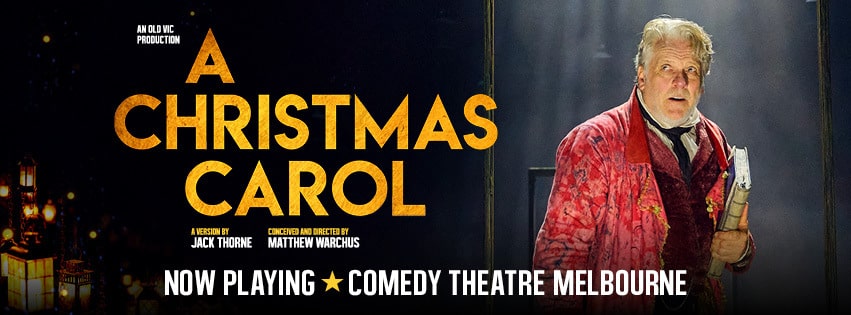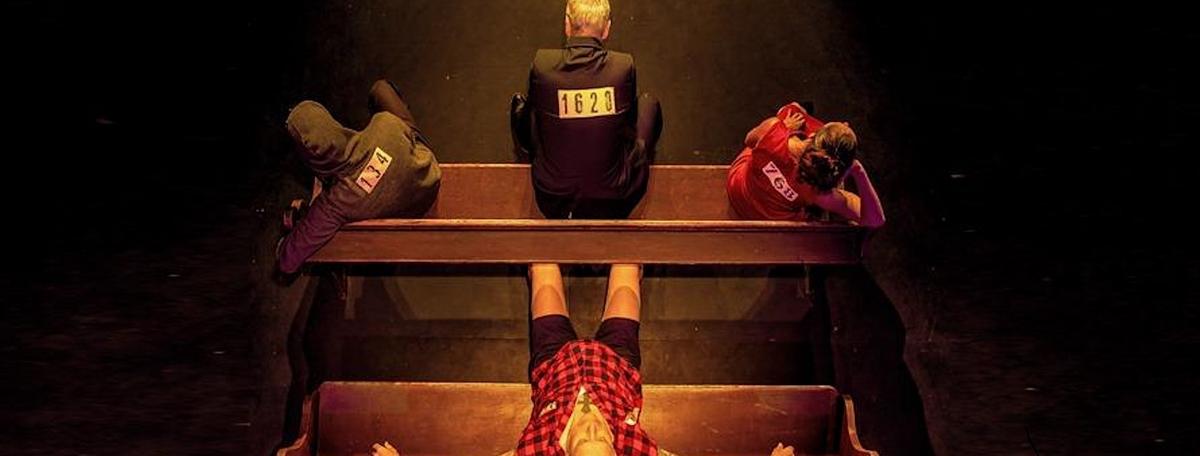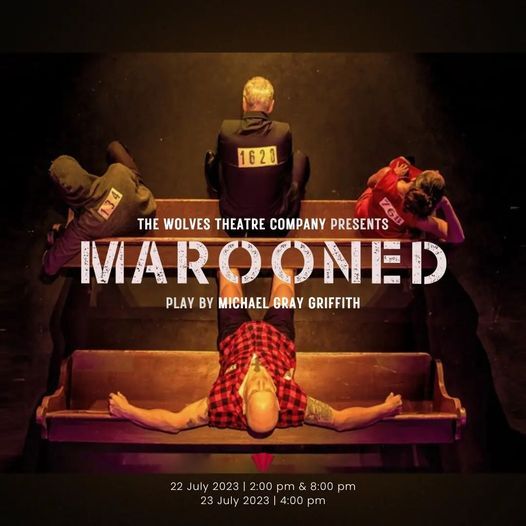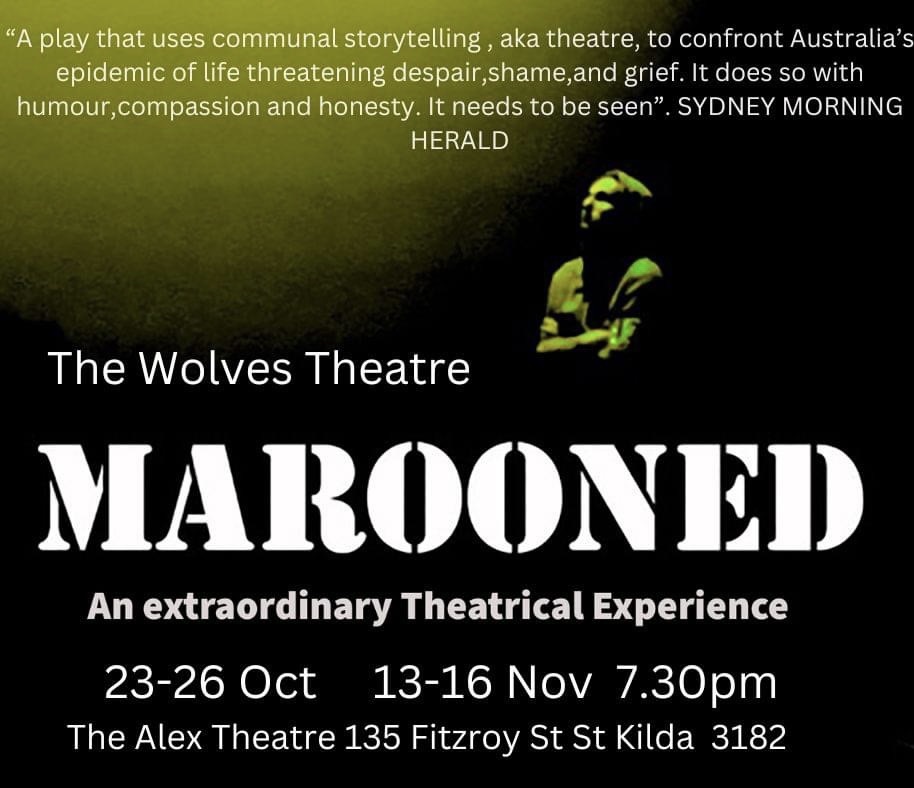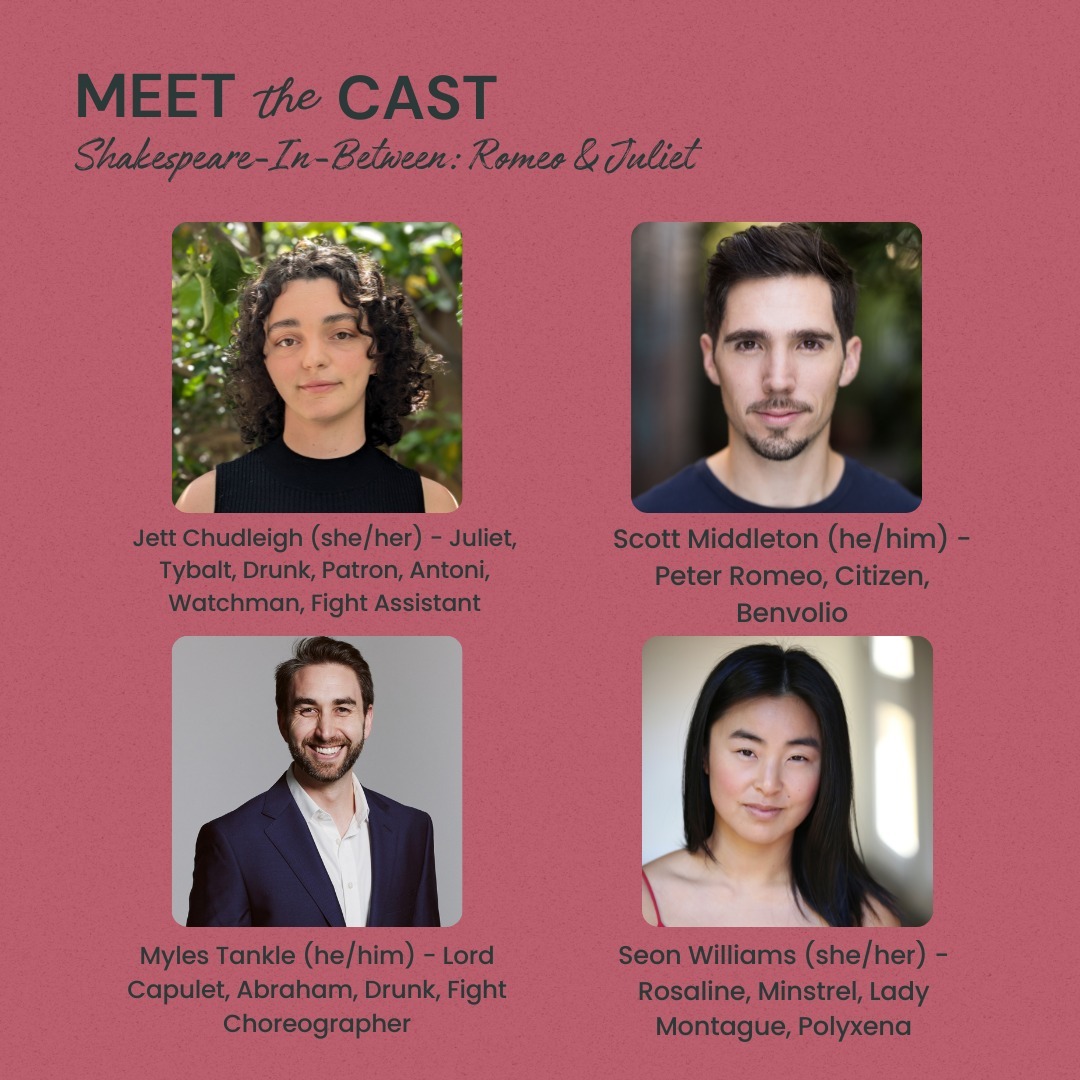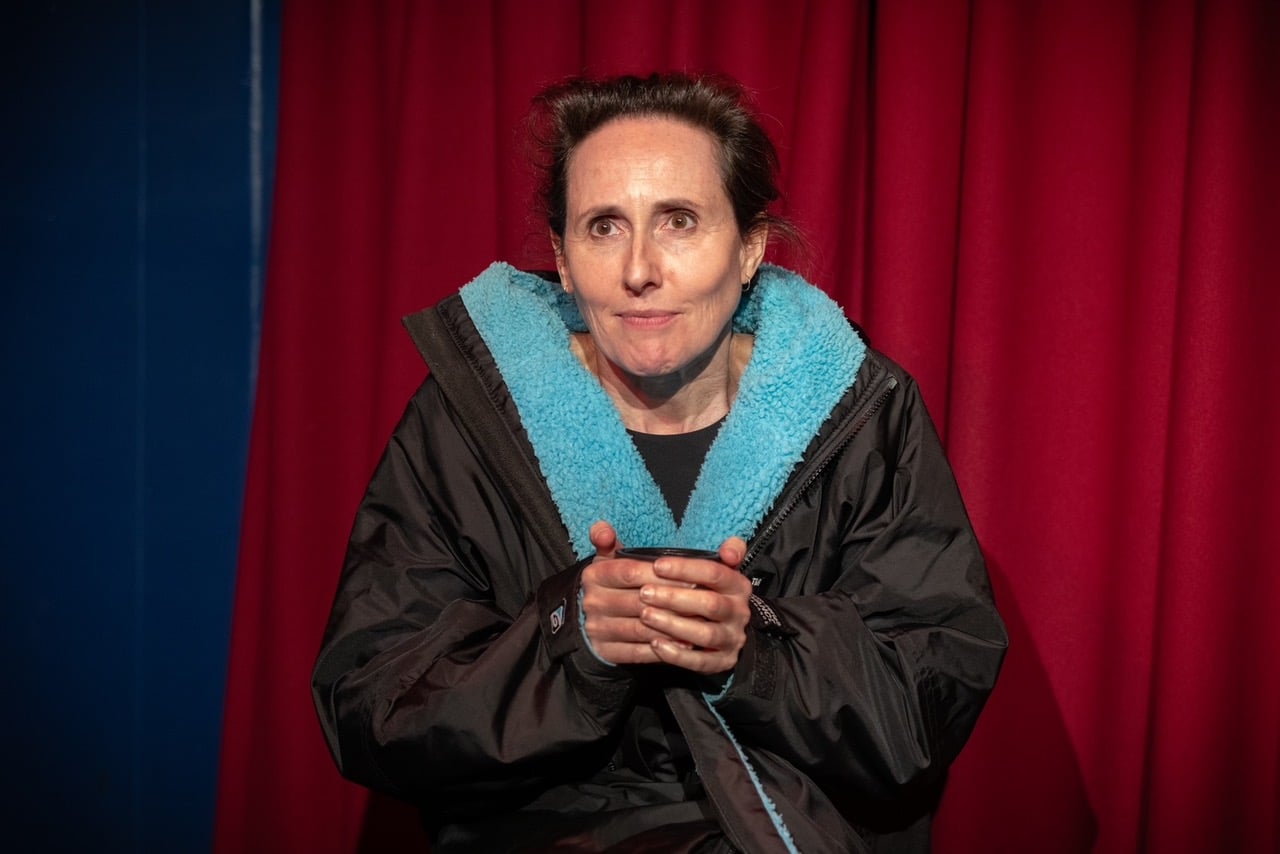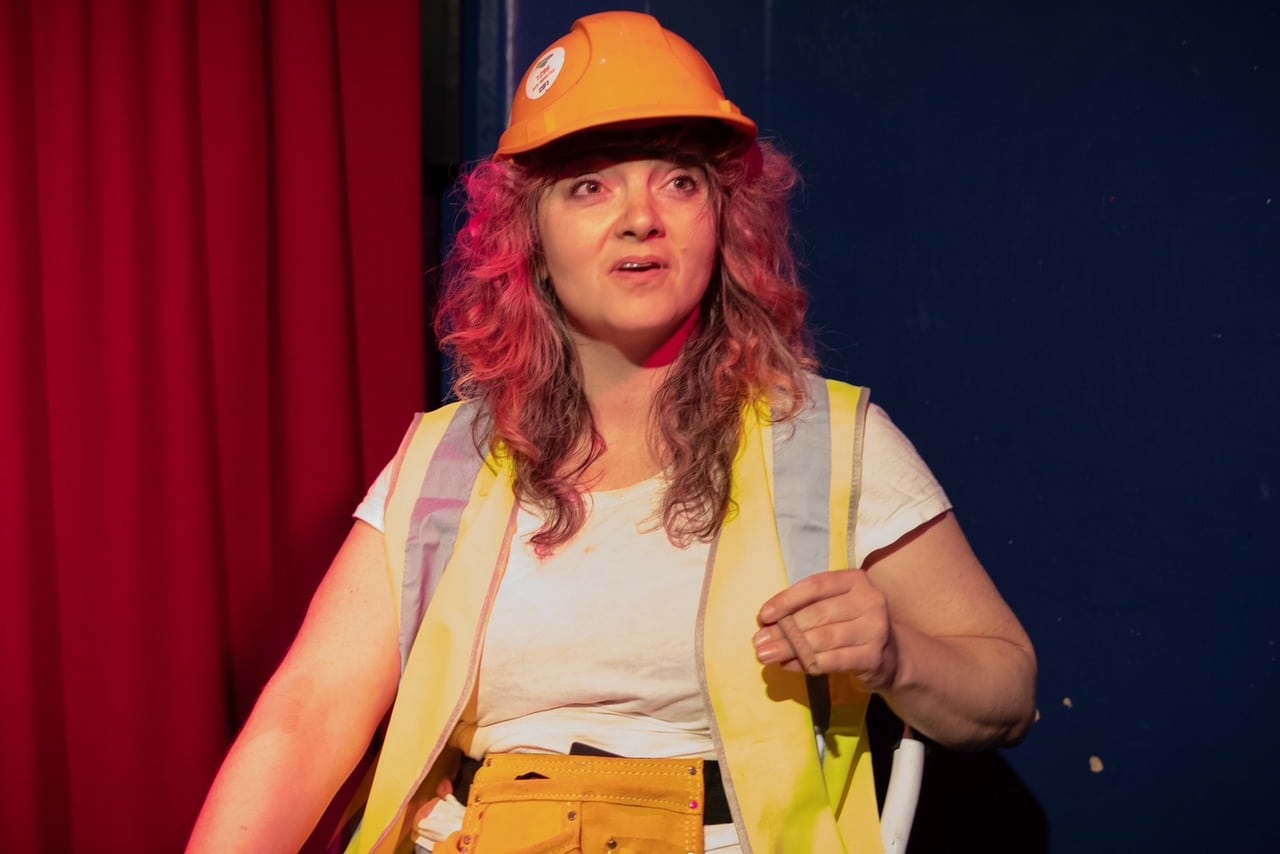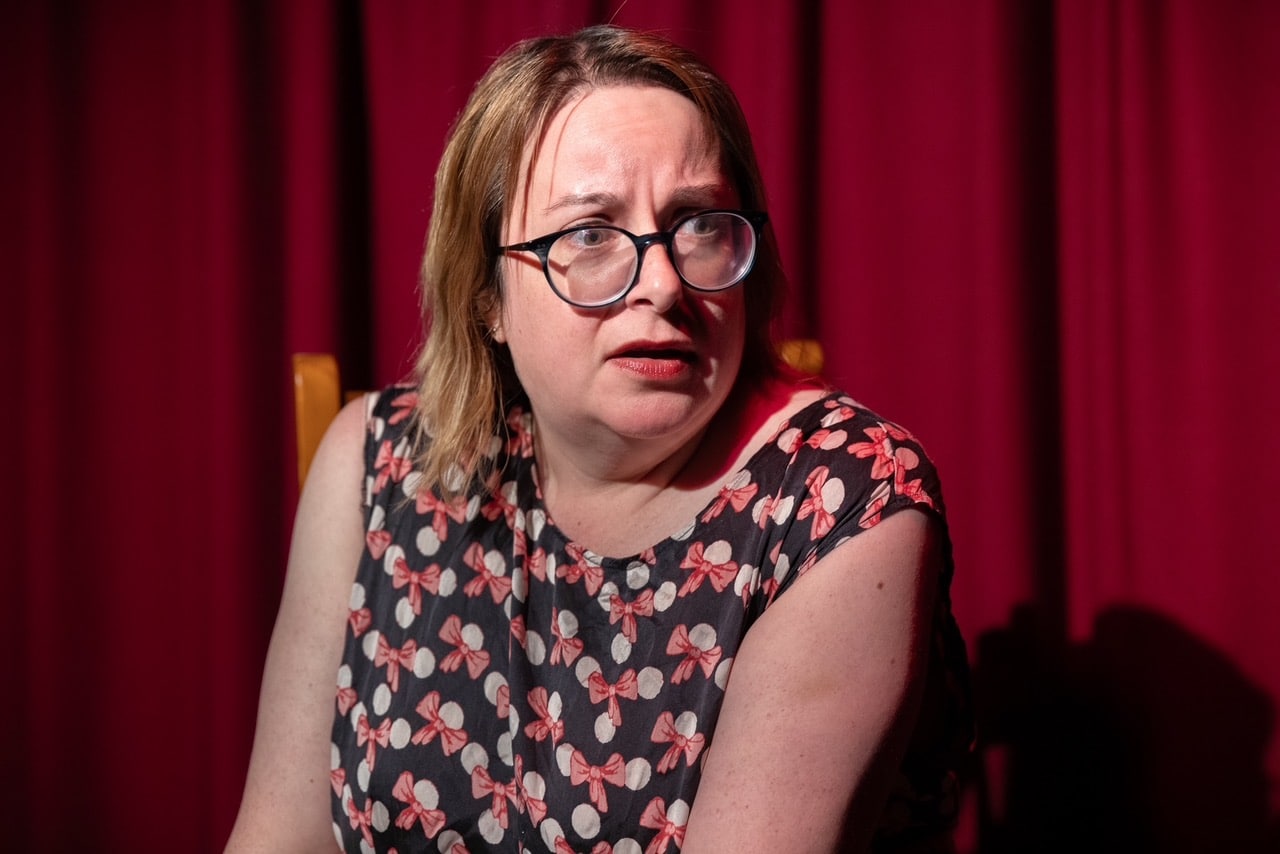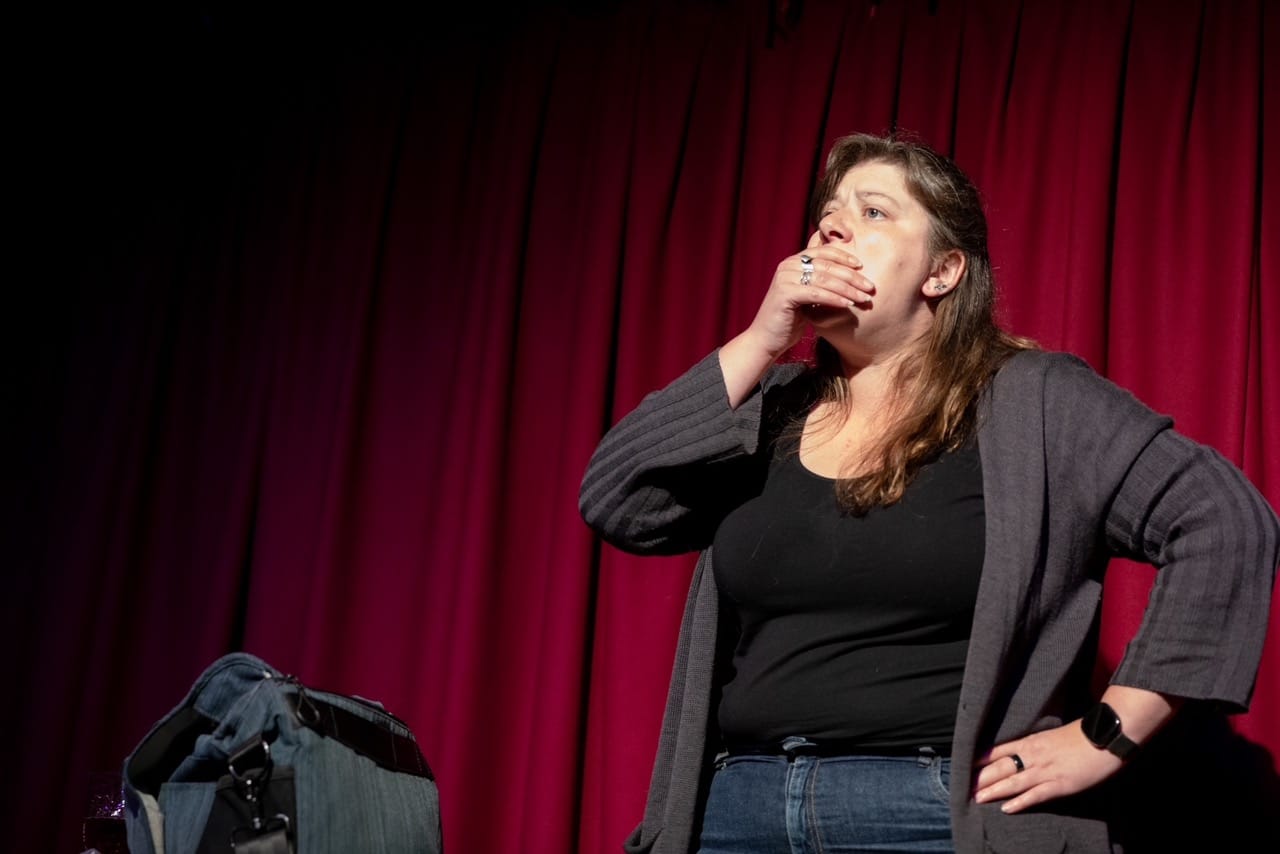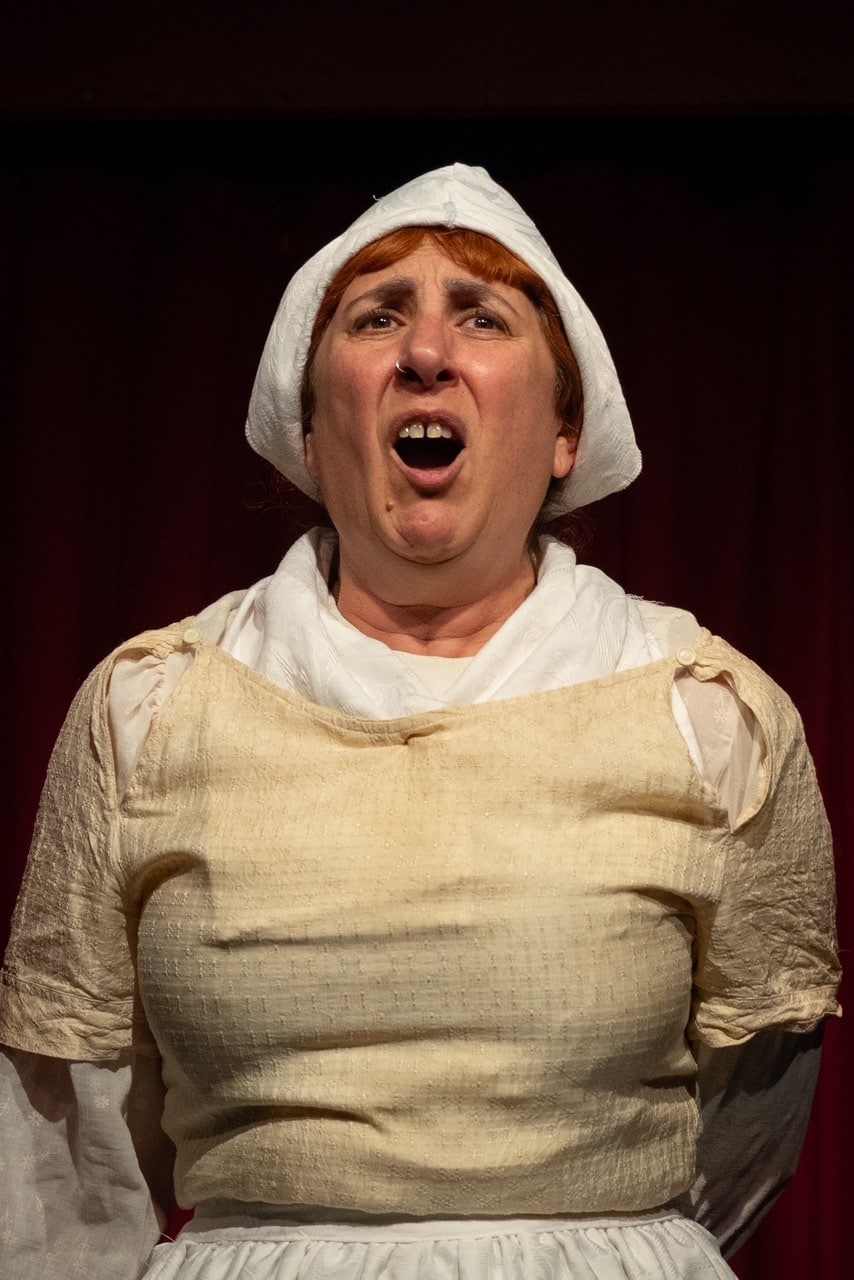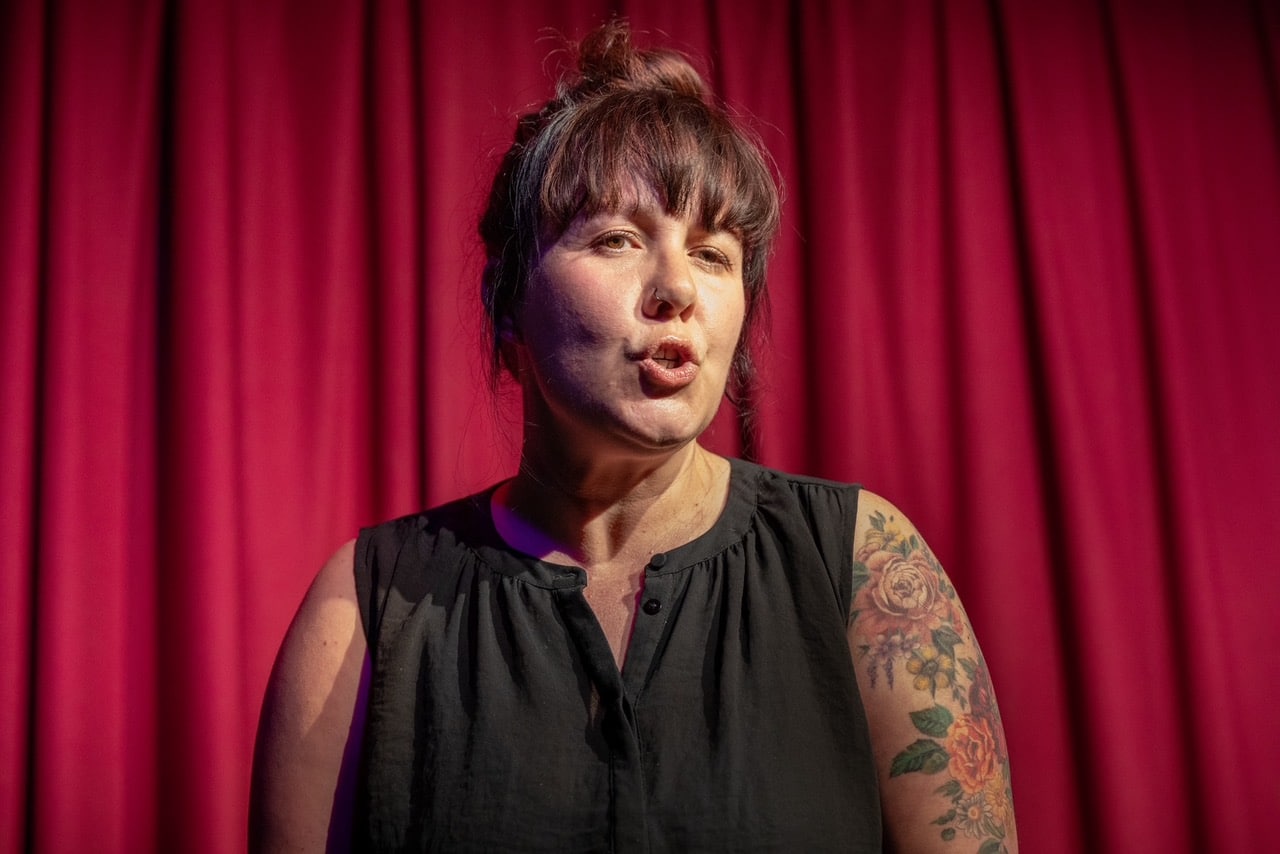Since first published in 1843, Charles Dickens ‘ A Christmas Carol’ has captivated audiences.
As the audience enters the theatre, a dimly lit stage with minimal set design greets them, and the sound of carols echos the room.
We meet Ebenezer Scrooge ( Erik Thomson), who we soon learn is a joyless, loveless, grumpy old man.
Life has a way of teaching us lessons, and as Ebenezer soon learns via a series of ghost visits, he has lived his life in a way that will lead him to isolation and loneliness.
The Ghost of Christmas Past (Alison Whyte) takes him on a journey to discover how the choices he made in his youth shaped the course of his future.
As painful as it is, he must learn that every action he took has led him to where he is and given him insights into how his mistakes changed him. As he meets The Ghost of Christmas Present ( Samantha Morely), he learns that the man he has become has consequences for not only himself but also his family and his employees. His selfish, avaricious ways have caused him to have blood on his hands.
Finally, the Ghost of Christmas Presents itself in the form of his sister Little Fan (Aisha Aidara), who shows him the consequences of his mistakes should he continue on his current path.
Through the process, Ebenezer has a revelation. He awakens from the loveless life he has carved out for himself, all in the name of greed. It is with this awakening that he is transformed, and his life changes forever.
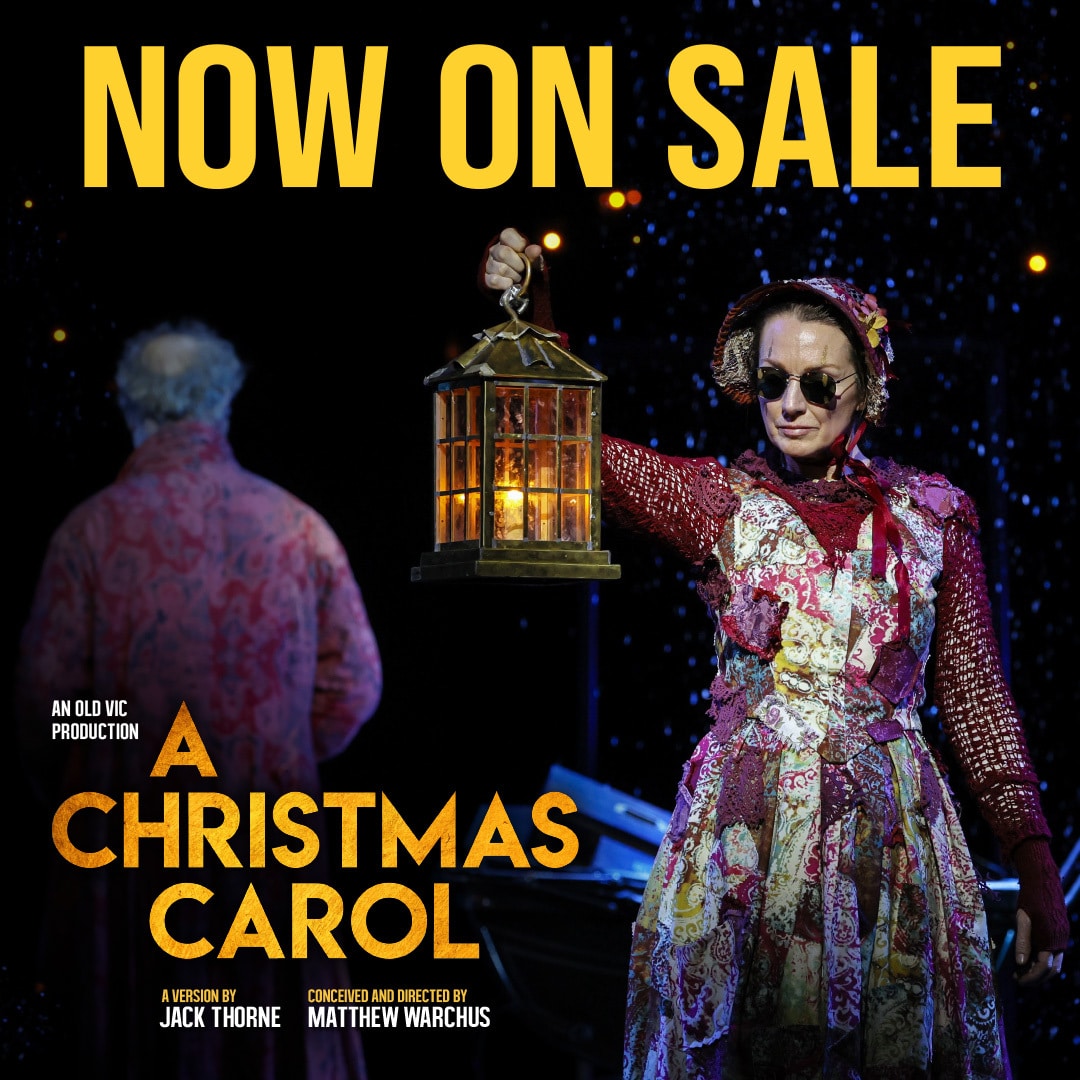


A Christmas Carol is a formulaic story, and as it is well known, we all know what happens. However, the performances of the cast and the incredible stage design make this production something special.
With scenic and costume design by Tony Award® winner Rob Howell, music and arrangements by Tony Award® winner Christopher Nightingale, and lighting design by Tony Award® winner Hugh Vanstone, the minimal set comes alive with breathtaking lighting and effects, making viewers believe that they truly are in London, snow and all.
Erik Thompson gave an exceptional performance, and his supporting cast was equally talented. The use of light and sound, whilst minimalistic, is impressive and effective.
Towards the end of the story, the audience is invited to participate, and the laughter from the crowd is infectious. The snow falling on the front rows and on stage is breathtaking and perfectly captures the atmosphere.
The story might be over 180 years old, but its predictable and transformative character story makes it a much-loved tale.
A Christmas Carol is, in some ways, a love story of sorts—it’s the story of an old man falling in love with life again, reinvigorated, and transformed into a better person. With that love comes redemption and happiness for all who come into contact with the new and improved version of Scrooge.
Jack Thorpe’s adaptation is nothing short of a fantastic telling of a much-loved story. It is a delightful production that is sure to leave audiences with a sense of wonder and excitement.
An Old Vic Production A CHRISTMAS CAROL
A version by Jack Thorne
Conceived and Directed by Matthew Warchus
Presented by GWB Entertainment
At the Comedy Theatre from 22 November to 29 December.
To book tickets to A Christmas Carol, please visit https://christmascarolaustralia.com.au/
